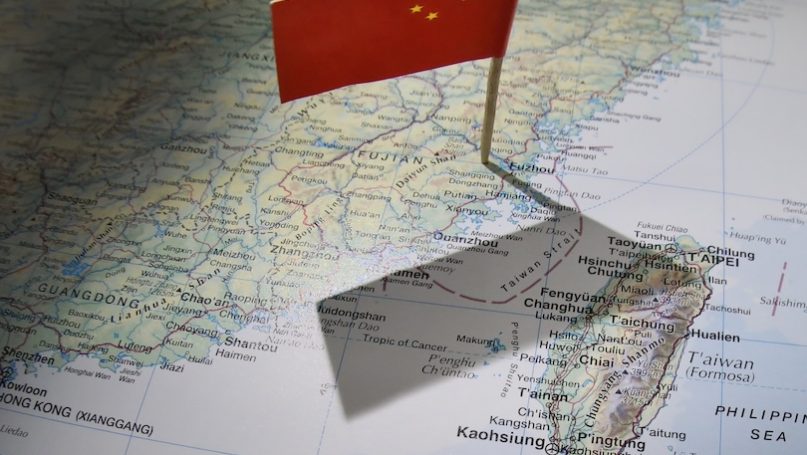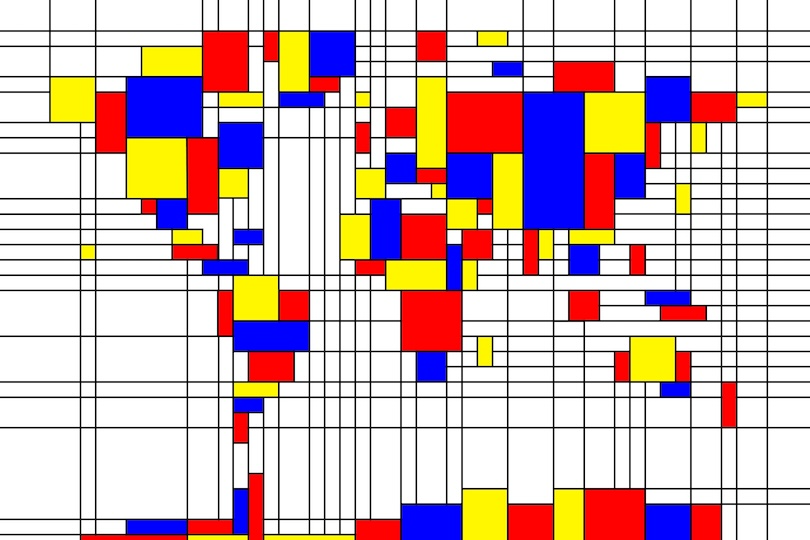
LBeddoe/Shutterstock
Speaking at a press conference, Mao Ning, spokesperson for China’s Ministry for Foreign Affairs, pushed the kingdom of Eswatini to cut its ties with Taiwan in the following way: “developing official relations with the Taiwan region is not in Eswatini’s interest. We believe Eswatini will eventually see the prevailing trend in the world and make the right decision accordingly”. This statement reflects a broader diplomatic campaign launched by Beijing to isolate Taiwan from the international community since Tsai Ing-wen assumed office as President of Taiwan in 2016.
China has been systematically poaching Taiwan’s diplomatic allies over the last several years. In this regard, Beijing has attempted to persuade Taiwan’s diplomatic allies that their cooperation with China would be helpful for their economic prosperity and sustainable development. In truth, this approach proved successful. When former Taiwanese President Tsai Ing-wen took office in May 2016, Taiwan had 22 diplomatic allies. From 2016 and 2024, ten states – São Tomé and Príncipe, Panama, Burkina Faso, the Dominican Republic, El Salvador, the Solomon Islands, Kiribati, Nicaragua, Honduras, and Nauru –terminated their diplomatic ties with Taiwan in favour of establishing relations with China. Consequently, the number of countries recognising Taiwan as an independent state has dropped from 22 to 12 (including the Vatican) since 2016. Beijing has also been blocking Taiwan’s participation in intergovernmental forums. Recently, member states of the World Health Organisation (WHO) decided against inviting Taiwan to the 77th World Health Assembly (WHA) as an observer due to objections from China, which considers the self-governed island an inalienable part of its territory.
China’s efforts to isolate Taiwan serve four main objectives. The first is to make the Taiwanese government diplomatically vulnerable in the case of any conflict between China and Taiwan. By preventing Taipei’s participation in intergovernmental forums and compelling other states not to formally acknowledge Taiwan as an independent state, Beijing seeks to limit Taipei’s ability to garner diplomatic support. Taiwan’s loss of diplomatic ties in Central America, a region in which it once had relatively strong relations, illustrates this and can be seen in states such as Panama, El Salvador, the Dominican Republic and Honduras shifting away from Taiwan.
The second objective is to coerce Taiwan into negotiations. Beijing anticipates that by undermining Taiwan’s global standing – both through blocking its participation in intergovernmental forums and poaching its diplomatic allies – the Taiwanese government would be more prone to engage in bilateral talks on terms favourable to China. Namely, China leverages Taiwan’s involvement in intergovernmental meetings and diplomatic relations as a bargaining chip. For example, during the COVID-19 pandemic, Taiwan sought participation in WHO meetings, mechanisms, and activities to collaborate with other nations on the research and development of vaccines and therapeutics. Despite its ability to contribute meaningfully to global efforts to combat the pandemic, Beijing refused to allow Taiwan’s participation. Instead, China sought to push for negotiations over the status of “1992 Consensus”, which states that both sides of the Taiwan Strait belong to one China.
China’s third objective is to prevent interference from external forces in Taiwan issues, both state and non-state. Key decision-makers in China foreign view external interference as the primary obstacle to China’s reunification with Taiwan. By pursuing a strategy to isolate Taipei diplomatically, Beijing aims to hinder and/or limit Taipei’s diplomatic interactions. One illustrative example of this strategy is when Lithuania allowed Taiwan to establish a representative office in Vilnius under the name Taiwan rather than Taipei, Beijing imposed various punitive measures. These included trade restrictions, halting freight trains to Lithuania, and banning the importation of Lithuanian goods. In September 2023, Beijing also imposed sanctions on two US-based military-industrial companies, Lockheed Martin and Northrop Grumman, in response to US arms sales to Taiwan.
China’s fourth and final objective is to de-legitimise and discredit the government in Taipei. By isolating Taiwan internationally, Beijing has attempted to portray Taiwan as an illegitimate political entity and undermine the broader concept of Taiwanese statehood. Prior to the administration of Tsai Ing-wen, Taiwan actively participated in various international forums, such as the World Health Organisation (WHO) and the International Civil Aviation Organisation (ICAO), under the name ‘Chinese Taipei’. This was a result of an understanding reached between Beijing and Taipei during the Ma Ying-jeou presidency in Taiwan. However, since 2016, they have repeatedly declined to allow Taiwan to participate. Each exclusion from global forums reinforces Beijing’s narrative that Taiwan’s status is ambiguous and ultimately subordinate to China.
Coming back to Eswatini, Beijing’s warning against maintaining relations with Taiwan is clearly part of a wider diplomatic pressure campaign that mirrors its broader strategy to diminish Taiwan’s presence on the global stage. Beijing likely believes that this policy will increase the difficulty for the Taiwanese government to resist ever-growing Chinese pressure. By isolating Taipei, Beijing aims not only to limit Taiwan’s ability to engage in international activities but also to make it more vulnerable, undermine its legitimacy, coerce it into unfavourable negotiations, and minimise external interference in what it deems a domestic issue.
Further Reading on E-International Relations
About The Author(s)
Tarik Solmaz is a PhD candidate at the University of Exeter’s Strategy and Security Institute. His thesis examines the changing character of warfare and, in particular, hybrid warfare. From 2014 to 2018, he served as a defence analyst in the Undersecretariat of Public Order and Security (Turkey). He has written on security issues for Real Clear Defense, Wavell Room, Small Wars Journal and The Interpreter.
Before you download your free e-book, please consider donating to support open access publishing.
E-IR is an independent non-profit publisher run by an all volunteer team. Your donations allow us to invest in new open access titles and pay our bandwidth bills to ensure we keep our existing titles free to view. Any amount, in any currency, is appreciated. Many thanks!
Donations are voluntary and not required to download the e-book - your link to download is below.

 Movie
Movie 2 months ago
48
2 months ago
48 






![Presidents Day Weekend Car Sales [2021 Edition] Presidents Day Weekend Car Sales [2021 Edition]](https://www.findthebestcarprice.com/wp-content/uploads/Presidents-Day-Weekend-car-sales.jpg)



 English (United States)
English (United States)